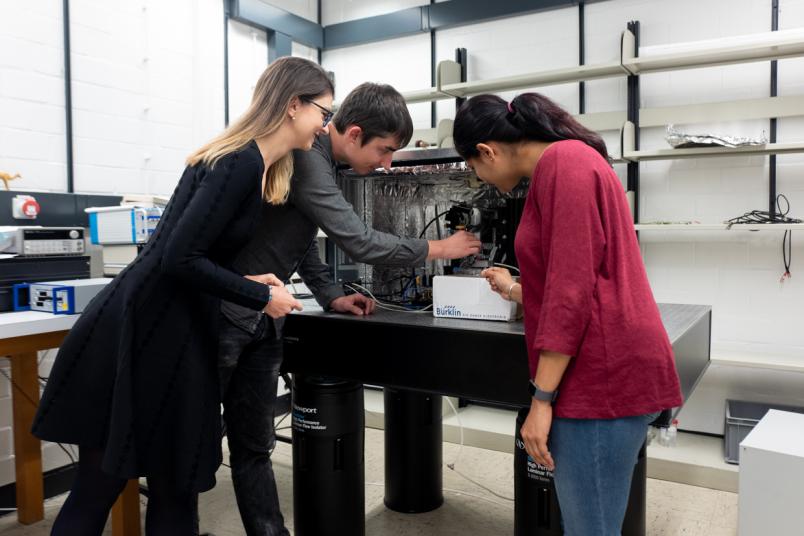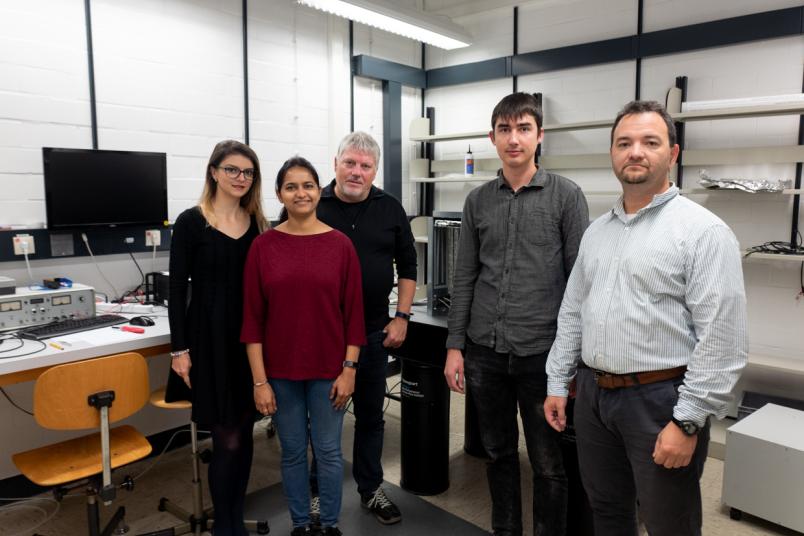Chemistry
Determining the activity of noble-metal-free catalyst particles
Noble-metal-free nanoparticles could serve as catalysts for the production of hydrogen from water. Because they are so small, their properties are difficult to determine.
Chemists have developed a new method with which they can characterise individual noble-metal-free nanoparticle catalysts. The particles could be a cheap alternative to precious metal catalysts for obtaining hydrogen from water by means of electrolysis. “In order to develop effective nanoparticles, we need to understand how the structure and activity of individual particles or small particle groups are related to each other,” says Professor Wolfgang Schuhmann of the Center for Electrochemistry at Ruhr-Universität Bochum. He describes a new measurement method for this purpose together with the researchers Tsvetan Tarnev and Dr. Harshitha Barike Ayappa from Bochum and Professor Corina Andronescu from the University of Duisburg-Essen and other colleagues in the journal “Angewandte Chemie” of 1 October 2019.
So far, there are few techniques available to measure the catalytic activity of individual or a few nanoparticles. “The currents that have to be measured are extremely small, and one has to find single or few nanoparticles in order to measure them reproducibly,” explains Schuhmann. The research team, which cooperates within the University Alliance Ruhr, showed that such analyses are also possible with high throughput – namely with scanning electrochemical cell microscopy.
Development of a new reference system
Until now, the method had not been used for this purpose because the nanoparticles had to be tested under demanding chemical conditions and thus large measurement inaccuracies occurred. This made a reliable interpretation of the results impossible. In their current work, the researchers developed a new reference system for scanning electrochemical cell microscopy. By cleverly using a stable internal standard, they eliminated the measurement inaccuracies and enabled long-lasting measurements under the given conditions with high throughput.
Analysis of self-made nanoparticles
The researchers produced carbon particles with nitrogen and cobalt inclusions on glassy carbon, the particles being present on the surface either individually or in groups of a few particles. In a single experiment, they were able to use scanning electrochemical cell microscopy to determine the electrochemical activity of all these individual particles or particle groups.
The particles catalysed the so-called oxygen evolution reaction. The electrolysis of water produces hydrogen and oxygen – the limiting step in this process is currently the partial reaction in which oxygen is evolved; more efficient catalysts for this partial reaction would facilitate the production of hydrogen.
University Alliance Ruhr
Funding

